5 Mantras for Dealing with Difficult People and Tense Situations
Repeat these calming refrains during tough moments with tough people. Developed by the author of Habit Changers, they can help you sidestep conflict and feel better about the whole interaction.

Photo: Jenny Meilihove/Getty Images

My sixteen-year-old daughter said this to me one day to remind me I didn't need to give her a lecture on doing her homework. She was absolutely right. My talking would serve only to annoy her and to reduce the likelihood of her doing what I wanted her to do. Since then I've been giving this habit changer to clients like Matt who have a tendency to give long-winded lectures that are demotivating and completely unnecessary. I have sat in meetings where Matt pontificated in generalizations about the problems with "people's" behavior for ten minutes, repeating the same points over and over. No one else dared say a word. They just sat there with their heads down, waiting for the tirade to be over. I call it the "wolf and sheep dynamic." The wolf growls and shows his teeth and the sheep freeze, hoping if they stay still they won't get eaten. It accomplishes nothing whatsoever, except to alienate people and increase team turnover. When I spoke with him about it, Matt truly believed such monologues would improve his team's performance. I helped him see that he was pushing people's buttons unnecessarily. He used this habit changer to edit his lecturing tendency and instead to think, "What do I want people to do?" then simply suggest or request that, rather than beat them over the head with it.
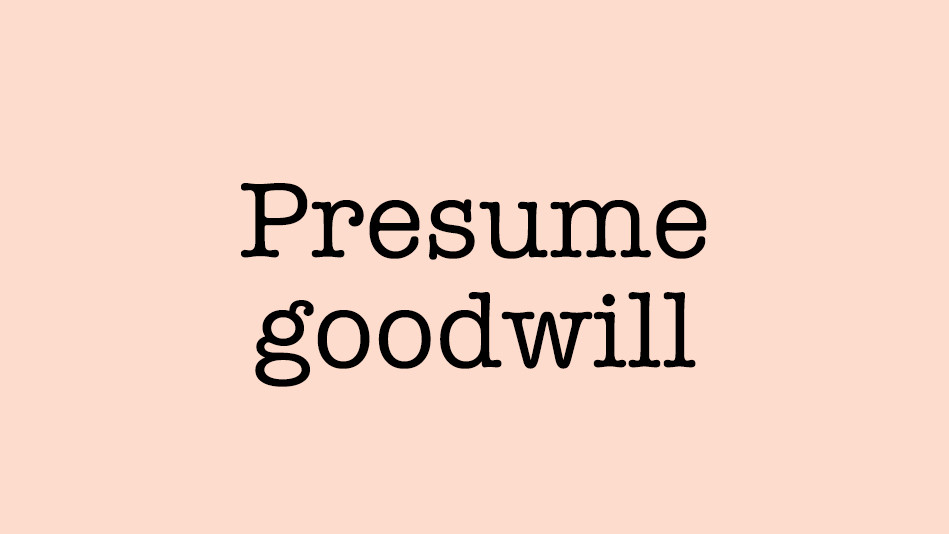
It's so easy to get upset or angry at someone and conclude he's a nasty person who's just out to challenge or harm you, isn't it? When someone acts in a way you don't like, it's only human to make assumptions about his intentions and motivations. We say, "It's only human," because the human brain is structured to take in information, draw conclusions from that information based on our previous history, and then act on the basis of those assumptions, a process that is largely unconscious. Experts describe it this way: We push the present through a filter based on the past in order to predict the future. Unfortunately, these conclusions get in the way of creating and maintaining healthy work and family relationships—because they are often wrong. True, people can be unkind, inconsiderate, oblivious, or downright mean, but it's rarely intentional. Most folks are too focused on themselves to intentionally try to provoke you. But because of the filter your brain has created from its previous history, it can be easy to believe they're doing it on purpose. Instead, try defaulting to the opposite assumption. Many people I've given this phrase to have turned all kinds of relation- ship challenges around simply by presuming good-will on the other person's part. Even if someone does indeed have a nasty intention, which in my experience is relatively rare, the more we presume goodwill, the better the encounter goes.
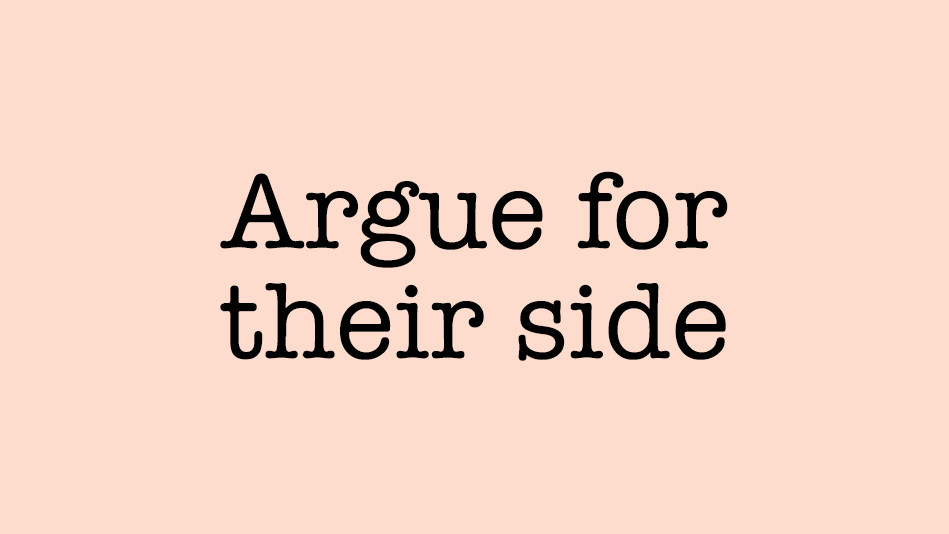
Do you find yourself in conflicts with others a lot? In situations where you are absolutely sure you are right and the other person is wrong—and you have no trouble saying so? Whenever I work with people like this, I notice that they end up in ping-pong arguments, tossing the ball of "I'm right"/"No, I'm right" back and forth, getting absolutely nowhere. It creates a stalemate unless one person has more power and pulls rank—"I'm the boss so we'll do it my way"—which may end the tug-of-war but doesn't help create buy-in or goodwill. I always suggest in these situations that my clients learn how to argue for the other person's side. Recently I came across the method social psychologist Anatol Rapoport suggested for creating a successful critical commentary. It's a great recipe for dealing with conflict. Rapoport believed that first you should reexpress the other person’s position so well that they feel truly understood. Then you should list any points on which you agree and anything you have learned from what they said. Only then do you offer your perspective. Folks who use this habit changer to remind them to follow Rapoport's process are amazed to find that it moves them past conflict gridlock to much more collaborative possibilities.
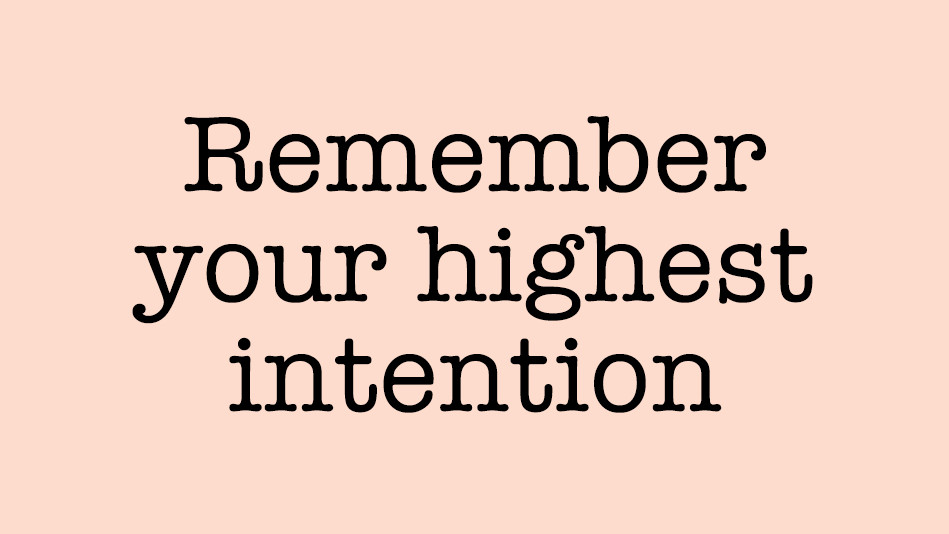
I was working with two friends who owned a business together. After years of harmonious partnership, they were having a lot of disagreements and requested that I mediate a conversation. To begin, I asked them what their highest intention was for the meeting. Both said some version of "To do what's best for our business and to preserve our friendship." I wrote it down on a flip chart so that they could see it, and we began to work. When the conversation would get heated or one person would get offended by what the other said, I would point to the paper to remind them of their intention. It helped them remember they both wanted the same thing for the business; they just disagreed about how to go about it. After that day, I worked on and off with them for about a year, and they used this habit changer throughout the process to recall in difficult moments what truly mattered to them both. Ultimately they decided to end their partnership, with one person buying out the other. But because they remembered their highest intention, they did it in such a respectful way that they remained friends.
In any challenging situation, when you get clear on your highest intention, it will help you call upon your best self to enact that intention. Maybe not always, maybe not perfectly, but more times than not!
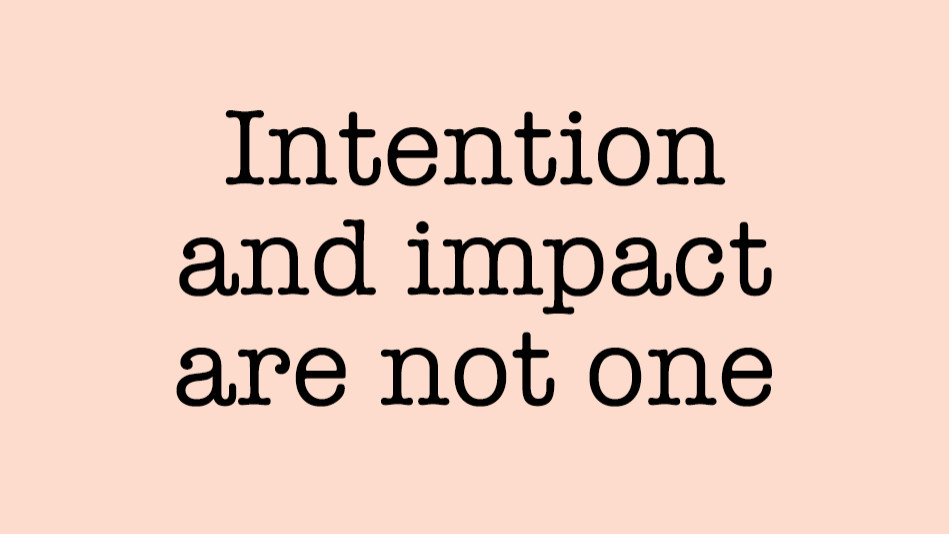
This is one I give all the time to clients who speak without thinking about the effect what they are saying will have on their listeners. Folks like this tend to consider themselves "straight shooters" and "honest," which is undoubtedly true. The problem is that not thinking about the effect of words can also cause a lot of unnecessary conflict. This habit changer helps them remember that while their intention in what they are saying may be positive, the way it's landing on the other person might not have the effect they’re looking for. It helps them to think about the impact as well as the intention of what they say. My clients also find it useful when communication with someone has broken down and an apology is necessary—because an apology is most effective when you express regret for the impact you caused and explain what your intention was. What's great about this slogan is that it also works in the reverse situation—when you’re at the receiving end of a message that might sting. Separating the impact on you from the speaker's intention can help you go beyond your reaction to uncover the purpose he or she was aiming for. When you find the positive intention—He was just trying to improve our process, even though it came across as devaluing what I've been doing for the past month—it can help keep you open to working together in as positive a way as possible.
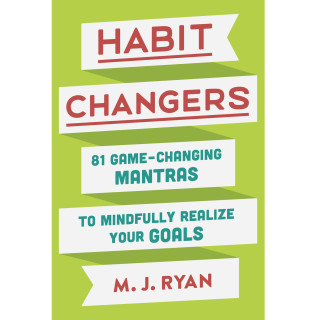 Reprinted from the book Habit Changers: 81 Game-Changing Mantras to Mindfully Realize Your Goals Copyright © 2016 by M.J. Ryan. Published by arrangement with Crown Business, an imprint of Penguin Random House LLC.
Reprinted from the book Habit Changers: 81 Game-Changing Mantras to Mindfully Realize Your Goals Copyright © 2016 by M.J. Ryan. Published by arrangement with Crown Business, an imprint of Penguin Random House LLC.
Want more stories like this delivered to your inbox? Sign up for the Oprah.com Spirit Newsletter!



